The Persistent Pro: Through the years with Cadel Evans
From Saeco to BMC, Evans looks back on his career on the road
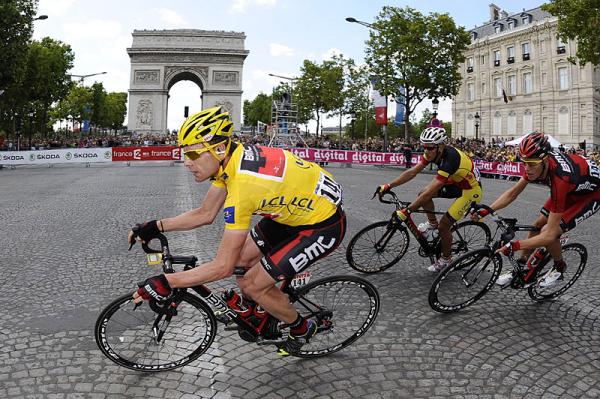
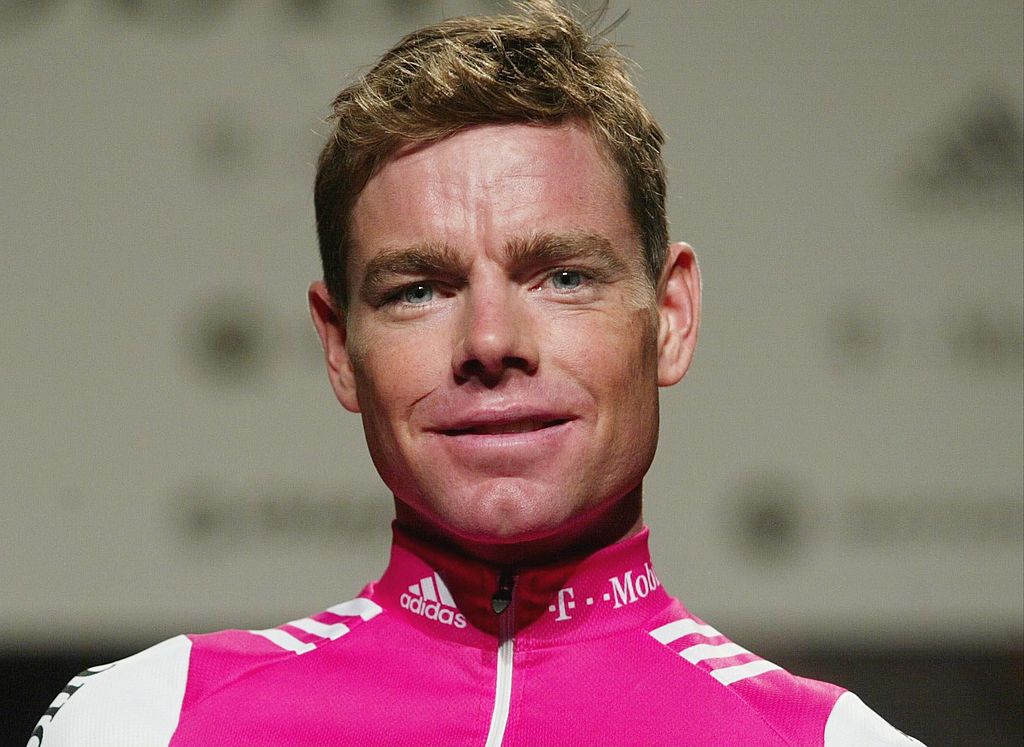
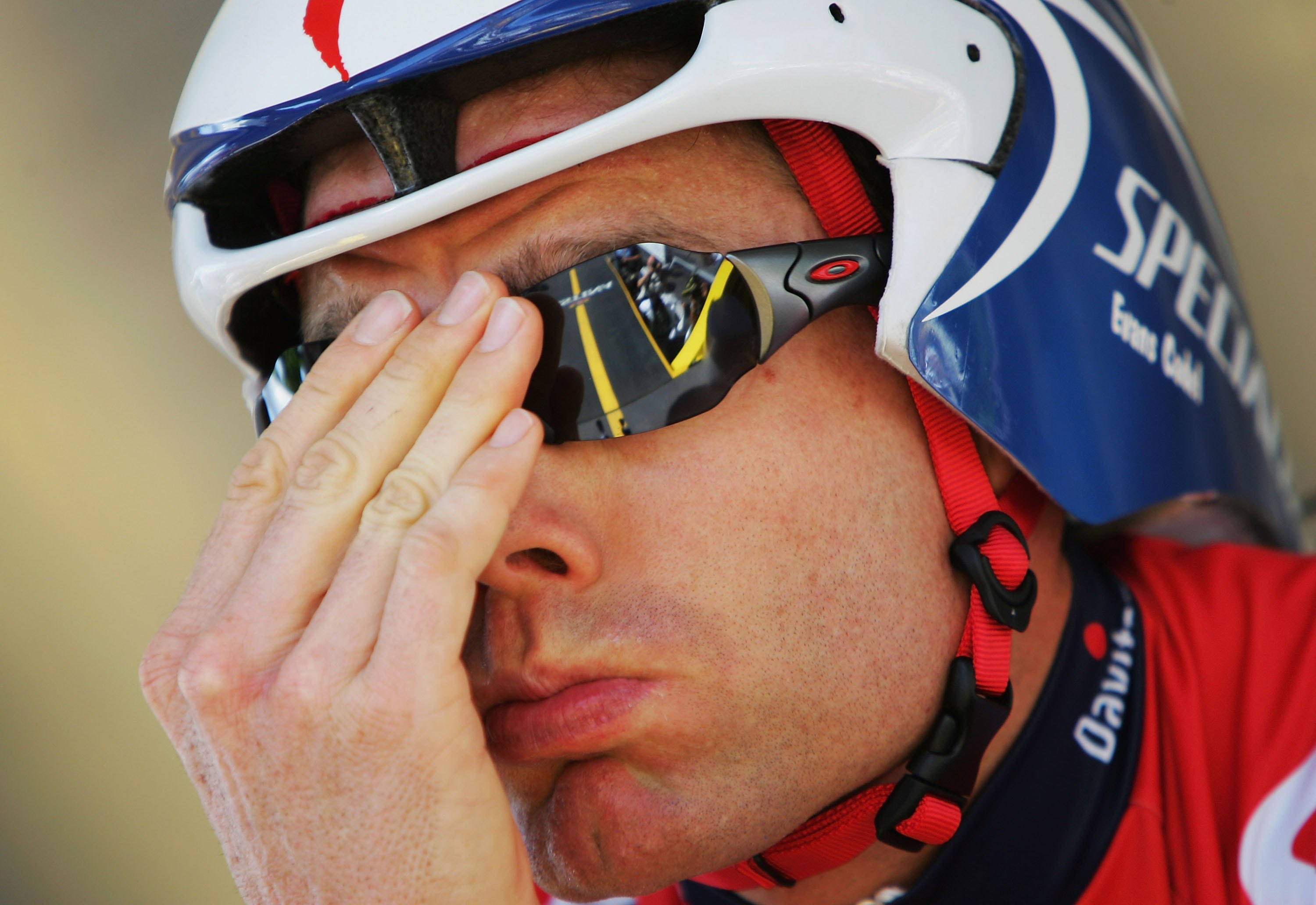
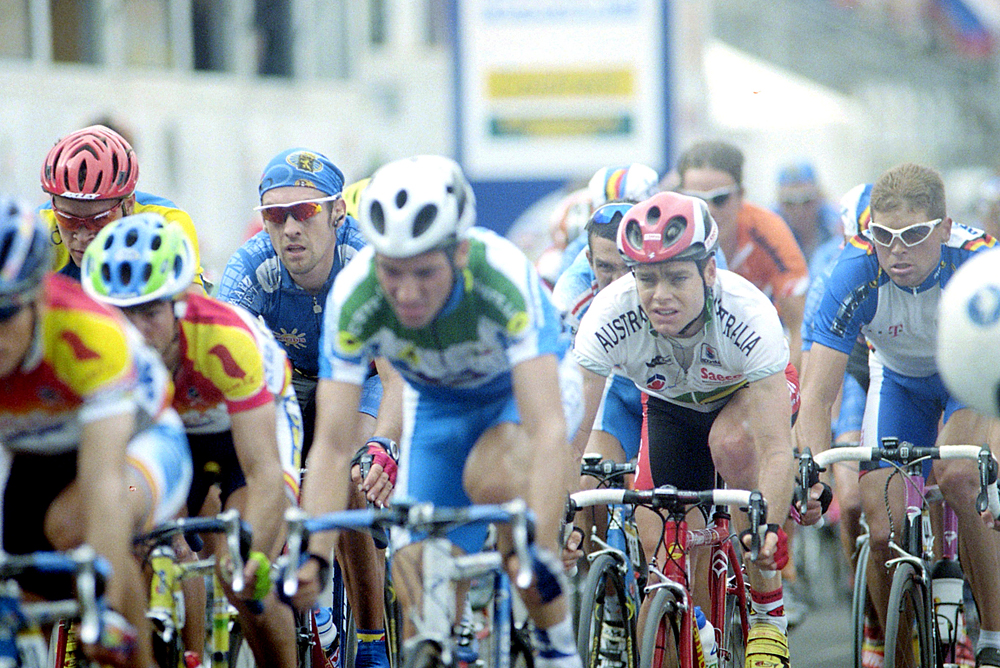
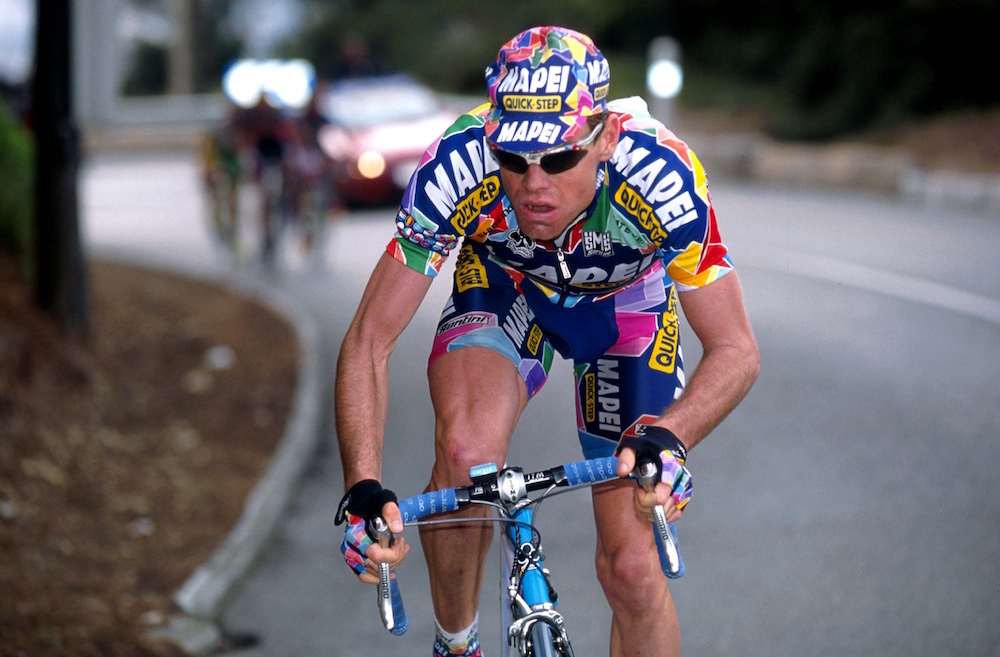
Cadel Evans had an illustrious racing career, winning the the World Championships in 2009 and the Tour de France in 2011. Now in retirement, his eponymous Great Ocean Road Race will step up to the UCI WorldTour for the very first time.
The Australian's road racing career spanned three decades and saw him ride for some of the biggest teams in the sport. At the BMC Racing Team training camp in Denia, Evans – who is now a brand ambassador for the Swiss bike company – sat down with Cyclingnews to look back at his rise to the top and the teams he rode for.
Saeco Macchine per Caffè (1999 and 2001)
I came into cycling through mountain biking and I was riding for the Volvo Cannondale bike team in 1998. That year I rode the Tour of Tasmania and won, with Neil Stephens second and that kick-started things for me. Through the Cannondale relationship, I had the opportunity to race with the Saeco team and rode as a stagiaire with them in 1999 before turning professional with them in 2001. I think I did about 36 days on the road in 2001 as I was still riding mountain bike world cup events but I was already living in Europe and a lot of the road riders I had been riding with at the U23 level were already pros by the time 2001 came around. Still, the move was a huge step up for me and only one person spoke English on the entire team.
Mario Cipollini was at the team, both in 1999 and then again when I came back in 2001 and he was the main leader. I was never going to speak out against him or speak out of turn and I liked him as a character for what he brought to the sport of cycling, but to be his teammate was an interesting experience for a young guy coming into the sport. He certainly liked to make his presence felt on the team. I once walked into a room and he was there, stark naked and being cleaned by a soigneur. That was a certainly a bit of a shock, and strange, but he was the boss and he loved that. He used to say 'as long as my name is in lights', it's all good.
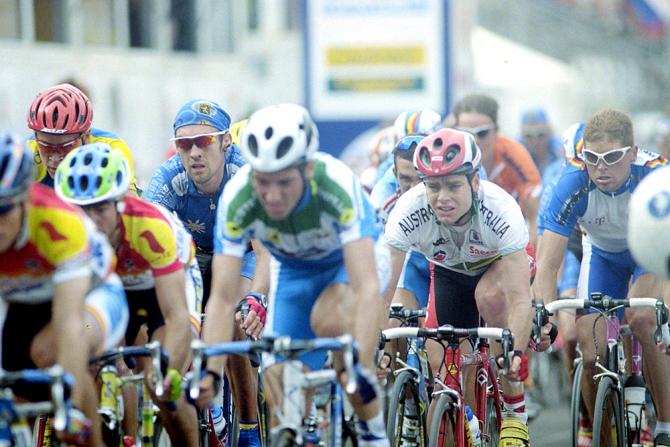
Photo: Sirotti
Mapei – QuickStep (2002)
Mapei had seen that I'd won a couple of races at Saeco and they'd been watching my development as a rider. They asked me if I wanted to come over to the team and try to become a Grand Tour rider and at that point in my career I was ready for a new challenge. I was 25 years old and I felt like it was still young enough to change my path. At the same time, when a team like Mapei comes along with a contract you have to take it wit both hands. I went to the Giro d'Italia that year and considering I'd only raced 36 days on the road during the previous season, and not really prepared for the road season in 2002, I still considered myself a neo-pro when I turned up at Mapei.
The team of course folded later that year but I really felt that I could have spent my entire career there, had they kept going. If you talk with anyone who raced there, that was really the team to be on. You just have to look at the development team that came through with riders like Cancellara, Pozzato, Rogers, and Eisel. They were incredible. At the same time we were the biggest team in the world, so we were expected to ride at the front and to win. I remember the first race I did with the team, the Tour Down Under, and a three-man break went clear. At the end of the stage our general manager at the time, Alvero Crespo, turned to us and said, "There were three riders in the break and no Mapei!" There were nearly 200 people in the race and it wasn't like we'd miss the split but every race we went to there were riders who could perform.
Get The Leadout Newsletter
The latest race content, interviews, features, reviews and expert buying guides, direct to your inbox!
Back to the Giro, I remember that all the expectations were on Garzelli, who was our team leader. He was a GC favourite and we had Paolo Bettini on the team too. Unfortunately Paolo had to go home early and then we had the controversy with Garzelli, who was taken out of the race. I was just there, plodding along to see what I could do and I ended up riding into the pink jersey.
Heading into the Giro I'd done this huge block of training in order to adapt from mountain biking to road, and that, combined with the heavy racing programme, and that I was a neo-pro meant I underestimated my own fatigue. That ended up costing me 15 minutes on the last 9km of the last climb of the Giro. It was a still a huge learning experience, even if I'm still remembered by many as having the biggest hunger flat in the history of professional cycling.
Having the maglia rosa though was a real surprise. As a neo-pro everything was so new to me and even though I had fatigue I wasn't overwhelmed or intimidated because all these things were happening in my life, one after the other. I stayed calm while I was in pink and thought 'lets take this to Milan.' I really thought I could win so I was just going through the process but without really thinking of how tired my body was.
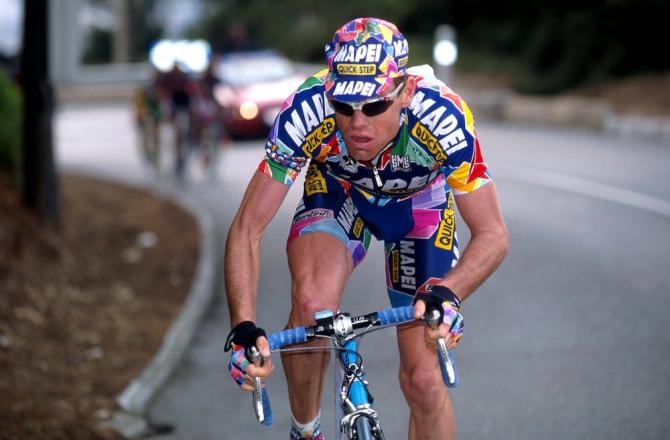
Telekom, later T-Mobile Team (2003-2004)
When Mapei closed all of a sudden I was left without a spot and I had to go somewhere else. At that point the teams that went for GC were few and far between. You either went to a Spanish team, and I didn't speak Spanish and they had a good crop of riders, or you could try and find another squad. Jan Ullrich had just left Telekom at the end of the 2002 season for Team Coast and the German squad were looking for GC guys. It seemed like a logical move, and although I had other options, they were the most dedicated specialist team for GC riders.
It ended up being the start of the lowest point in my career. I had injuries and in the end things just started to accumulate for me. I had that period where I crashed twice on my left side and re-broke a recently healed collarbone, and when you do that twice you lose so much training and the confidence that the team has in you starts to fade. That laid the basis and despite my best efforts nothing I could put in place could help me get going again.
In my second year with the team in 2004 I expected to be selected for the Tour de France. I saw a few things that made me doubt my place so I went to the team and asked, "Hang on is my place gone?" They told me that if I performed well in the mountains at the Tour of Austria I'd make the Tour team. Well, I went to Austria, won a stage, and the overall but then wasn't selected for the Tour. In terms of morale it was real blow and my Tour career was put on hold.
There was actually quite a strange dynamic in the team and they weren't the most open-minded, that's for sure. Anything outside of the German system certainly wasn't accepted, and nor was it understood. With Jan I always gave him distance because he was just completely inundated with people and the media and I could see that he was a quiet person who just wanted to ride his bike. I never really spent much time with him but when I did it was more about the media circus that was around him rather than being his teammate.
I did a few more races with the other team leader, Erik Zabel, and he was a very focused rider. If we were riding a race with hills in, like Murcia, and you could ride GC he didn't really like it because it meant you weren't going to work for him and pull back breaks. It basically meant that you were either team Jan or team Erik and I was in the middle trying to be more of a diplomat.
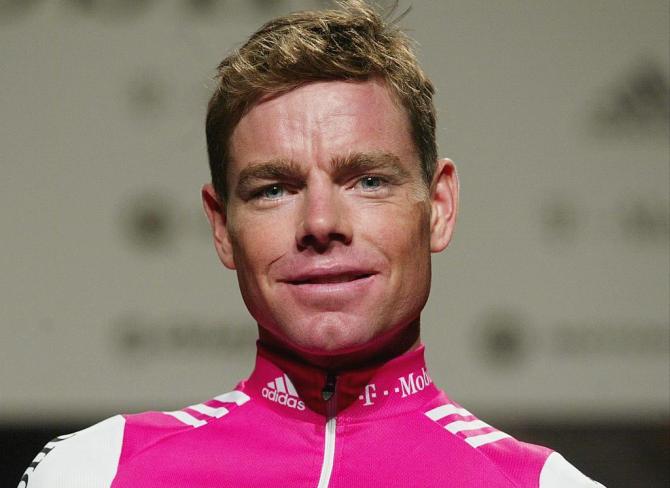
Davitamon – Lotto, later Predictor Lotto, Silence Lotto (2005-2009)
By this point in my life I just wanted to race my bike and ride at the front again. At T-Mobile I'd not been selected for the big races and I'd not even done a race like Liege-Bastogne-Liege since my time at Mapei. I'd still not started the Tour.
So, while Lotto was a Classics team they wanted to have a presence on GC and that gave me my chance. They had no experience in going for the overall and had no climbers on the team but Marc Sergeant came to me and I signed with him.
In my first year there I finished eighth in the Tour and did well in a number of races. I then won the Tour of Romandie the following year but in my first year I remember finishing second on the stage to Mont Faron at Paris Nice. It was early in the season but recall coming onto the bus and the guys were asking me where I finished and they couldn't believe it. "What? We were second on a hilltop finish?" That was completely different for them.
If T-Mobile was very big with this huge marketing side then Lotto was a lot more refreshing. We'd do a day of media and that would be it, while at T-Mobile we'd spend and entire day just having makeup put on us for our team photographs. At Lotto it was far more relaxed and we'd chill out more during training camps and I really enjoyed being at the races more.
I found Sergeant to be a really clever manager. He did a lot with the budget that he had but he was in a really difficult position in that he was constantly trying to please two co-sponsors. At a certain point it was bit like being on the Belgian national team and he had to do a lot in a political sense. I think he did it well, but I didn't envy his job. Of course when I started to not get results the relationship with the team started to break down.
Things started to deteriorate after I finished second at the Tour in 2008. I had a crash in the first week and that really knocked off about five per cent of my performance. As a sporting performance, to finish so close even after that crash, it was a really good ride but if I look back at the frustration of the crash and how hard I had to push myself to get that result I still struggle to come to terms with it now. That was the point that a lot of confidence was lost in me at the team. I'd finished second but they were convinced I was going to win. That was probably part of why I didn't in the end because there was a bit of complacency heading into the race and then the final time trial.
Ahead of that final time trial, and going up against Carlos Sastre, I knew that under normal circumstances I could win but with the difficulties I'd had with the crash it was really hard for me.
During that race I'd also been very overwhelmed with the public and the attention. That year they really looked to maximise publicity whenever they could but they could have insulated me a bit more from the pressures. I felt it was unfair on me as a rider to be expected to win the race, while at the same have these ridiculous expectations from the team for the media. I was injured during all of this and the human element for me had been forgotten. That was really difficult for me.
The problems of not winning in 2008 were compounded in 2009. I remember in January of 2009 I didn't even know if I was riding the Tour, the Giro, the Vuelta, or all three. The team's confidence had gone but I still enjoyed training and doing my job so I made the best of it. I felt very alone and not well supported.
Later in the year, after a tough Tour, I prepared completely for the World Championships. Up until that point I'd only worked towards stage races but on the day everything came together for me. A lot of people said that the win changed me but it was the cycling world that changed around me because I was still the same person. There was more respect, I could feel that but I'd like to think it was for me and not just the jersey. Going into the race Simon Gerrans was considered the one-day rider and I was seen as plan B. I don't think that the team had really understood just how much I'd focused on the race, even though I had told Neil Stephens in the build up. Before the race the team had a vote between racing for me or Simon Gerrans. The team voted for Simon but I voted for me and my roommate abstained.
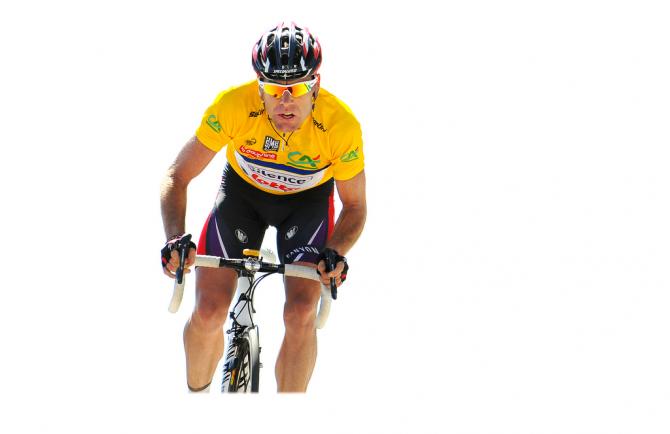
BMC Racing (2010-2015)
I had a contract with Lotto for 2010 but after they lost faith in me I decided to look at my options. There was an option within my contract to buy myself out and BMC were really keen to have me on their team. I saw the move as good for my sporting career and felt that BMC the company were a good option for after cycling. I took that decision with a business mind-set and so we made the decision before the Worlds that I would leave. It was one of the biggest investments I've made in my career but probably my best.
People thought that I was just going there to ride out my career and earn a lot of money but I always felt that we could build BMC into a Tour de France winning team. I still felt I could win the Tour and the work started straight away. I had some bad luck in 2010 but the dream became a reality a year later.
I remember seeing my odds for the Tour de France in 2011, just after I came back from Tirreno and I was at 28/1. I'm not a betting man and I certainly wouldn't bet on myself but I felt they were amazing odds.
If the Worlds changed things for me in terms of the world of cycling, then the Tour de France went way beyond that. What amazed me most was how many people watched the Tour and how much the race resonates with everyone. It's such a well respected event and my life is still affected, in a good way, from that victory.
Now when I look back I'm far more involved with the company than I ever was. When I was a rider I think I went to the factory twice, whereas now I'm there nearly once a month.
If I look back at what I could have done differently, I would have liked to have avoided the crash at the 2008 Tour but the real frustrating ones were getting sick in the 2010 Giro and the crash again at the 2010 Tour. There was a good chance to win there but if you speak to any high achiever in any field it's all that near misses that keep you going. I look back at my career and I always worked as hard as I could in order to do the best that I could. I wanted to get the best out of myself and when I crossed the finish line in my final race I felt very satisfied. I'd had this amazing opportunity, I'd given it everything and I didn't have any regrets.
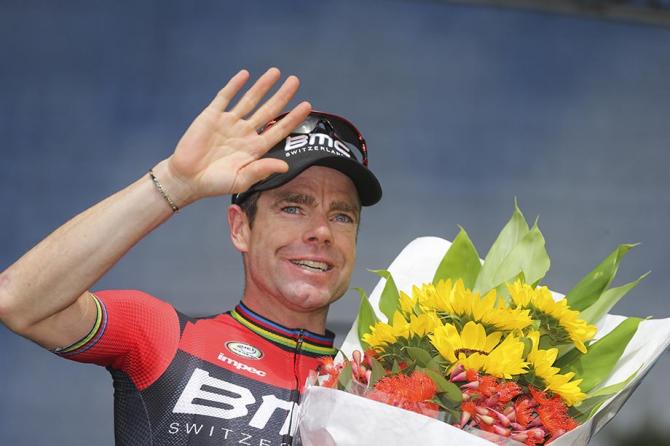
Daniel Benson was the Editor in Chief at Cyclingnews.com between 2008 and 2022. Based in the UK, he joined the Cyclingnews team in 2008 as the site's first UK-based Managing Editor. In that time, he reported on over a dozen editions of the Tour de France, several World Championships, the Tour Down Under, Spring Classics, and the London 2012 Olympic Games. With the help of the excellent editorial team, he ran the coverage on Cyclingnews and has interviewed leading figures in the sport including UCI Presidents and Tour de France winners.
